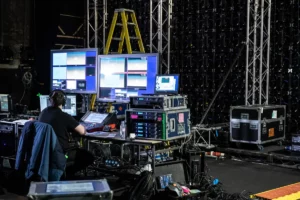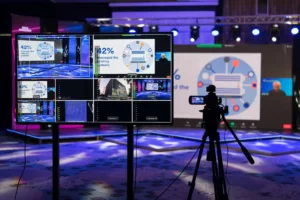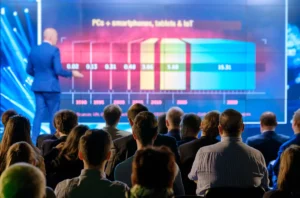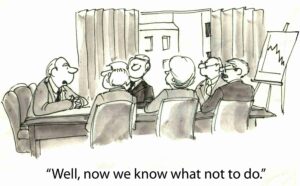Technology for Virtual Events has emerged as a powerful tool for organizations to connect with global audiences, deliver valuable content, and foster meaningful interactions.
Leveraging advanced technology plays a pivotal role in enhancing the effectiveness, engagement, and overall success of virtual events.
At Honest AV, we specialize in leveraging cutting-edge audio-visual solutions and event management expertise to create seamless virtual event experiences.
This guide explores essential strategies and best practices for leveraging technology to maximize the impact of virtual events without being sales-oriented.
Choosing the Right Virtual Event Platforms
Selecting the appropriate virtual event platform is foundational to delivering a successful virtual event:
- Criteria for Platform Selection: Consider factors such as scalability, interactivity features, customization options, and integration capabilities with other tools (e.g., CRM systems, marketing platforms).
- Comparison of Popular Platforms: Evaluate platforms like Zoom, Webex, and Hopin, examining their features such as live streaming, breakout rooms, audience engagement tools, and security protocols.
- Scalability and Flexibility: Choose a platform that can scale to accommodate varying event sizes and complexities while offering flexibility to meet specific event objectives and attendee needs.
Advanced Audio-Visual Solutions
High-quality audio and video are critical for delivering an immersive virtual event experience:
- Importance of Audio-Visual Quality: Invest in professional-grade audio equipment, including microphones and speakers, to ensure clear and crisp sound quality. Likewise, use high-definition cameras and lighting setups to enhance video clarity and presenter visibility.
- Tips for Technical Setup: Conduct thorough technical rehearsals to test audio-visual equipment functionality, minimize potential glitches, and ensure seamless integration with the chosen virtual event platform.
- Enhancing Communication: Implement techniques such as multi-camera setups and live editing to provide dynamic visuals and maintain viewer engagement throughout the event.
Interactive Tools and Engagement Features
Interactive features play a crucial role in fostering attendee engagement and participation:
- Interactive Q&A Sessions: Incorporate live Q&A sessions to facilitate real-time interaction between speakers and attendees, fostering engagement and addressing audience queries.
- Polls and Surveys: Use interactive polls and surveys to gather attendee feedback, gauge audience sentiment, and tailor content based on participant preferences.
- Virtual Networking Opportunities: Create virtual networking lounges and breakout rooms where attendees can connect with peers, sponsors, and speakers to enhance networking opportunities and collaboration.
Virtual Reality (VR) and Augmented Reality (AR) Applications
Explore innovative applications of VR and AR to enhance the virtual event experience:
- Potential Uses: Utilize VR for virtual venue tours, product demonstrations, or immersive experiences that simulate real-world environments. AR can enhance presentations by overlaying digital content onto physical spaces or products.
- Case Studies: Highlight successful implementations of VR/AR in virtual events, showcasing how these technologies have enhanced attendee engagement, learning outcomes, and brand experiences.
- Considerations: Assess the feasibility, cost-effectiveness, and technical requirements of integrating VR/AR into your virtual event strategy, ensuring alignment with event goals and audience expectations.
Data Analytics and Insights
Harnessing event data analytics provides valuable insights into attendee behavior and event performance:
- Importance of Event Analytics: Measure key metrics such as attendance rates, engagement levels, session popularity, and attendee satisfaction scores to evaluate event effectiveness and ROI.
- Using Data Insights: Leverage analytics to identify trends, understand attendee preferences, and optimize content delivery for future events. Use attendee feedback and sentiment analysis to continuously improve event experiences and enhance audience engagement.
Security and Privacy Considerations
Ensuring data security and attendee privacy is paramount in virtual event environments:
- Best Practices: Implement robust security measures, including encryption protocols, secure login procedures, and access controls, to protect sensitive attendee information and prevent unauthorized access.
- GDPR Compliance: Adhere to GDPR guidelines and other data privacy regulations to safeguard attendee data and build trust among participants.
- Transparent Communication: Communicate your commitment to data security and privacy protections to attendees, sponsors, and stakeholders to foster confidence and compliance.
Integrating Hybrid Event Capabilities
Explore strategies for seamlessly integrating virtual and in-person experiences through hybrid events:
- Hybrid Event Strategies: Combine virtual and physical event components to reach a broader audience and accommodate diverse attendee preferences (remote vs. in-person participation).
- Technology Integration: Utilize technology solutions that support hybrid event formats, such as live streaming capabilities, virtual attendee participation options, and synchronized content delivery across multiple platforms.
- Creating Cohesive Experiences: Design hybrid event experiences that provide equitable access to content, networking opportunities, and interactive features for both virtual and in-person attendees.
Case Studies and Success Stories
Examine real-world examples of organizations that have successfully leveraged technology for virtual events:
- Case Studies: Showcase examples of companies across industries that have achieved significant outcomes through innovative virtual event strategies, highlighting best practices, challenges overcome, and lessons learned.
- Industry Insights: Extract insights from industry leaders and experts on the evolving landscape of virtual events, technological advancements, and emerging trends shaping the future of event management.
- Honest AV’s Expertise: Illustrate how Honest AV has empowered clients with advanced technology solutions, customized event experiences, and strategic guidance to achieve virtual event success and exceed audience expectations.
Conclusion
Leveraging technology effectively is essential for delivering engaging, immersive, and impactful virtual events that resonate with attendees and achieve organizational objectives.
By adopting best practices, embracing innovation, and partnering with experienced event management professionals like Honest AV, organizations can elevate their virtual event experiences and drive meaningful outcomes in today’s digital landscape.















































